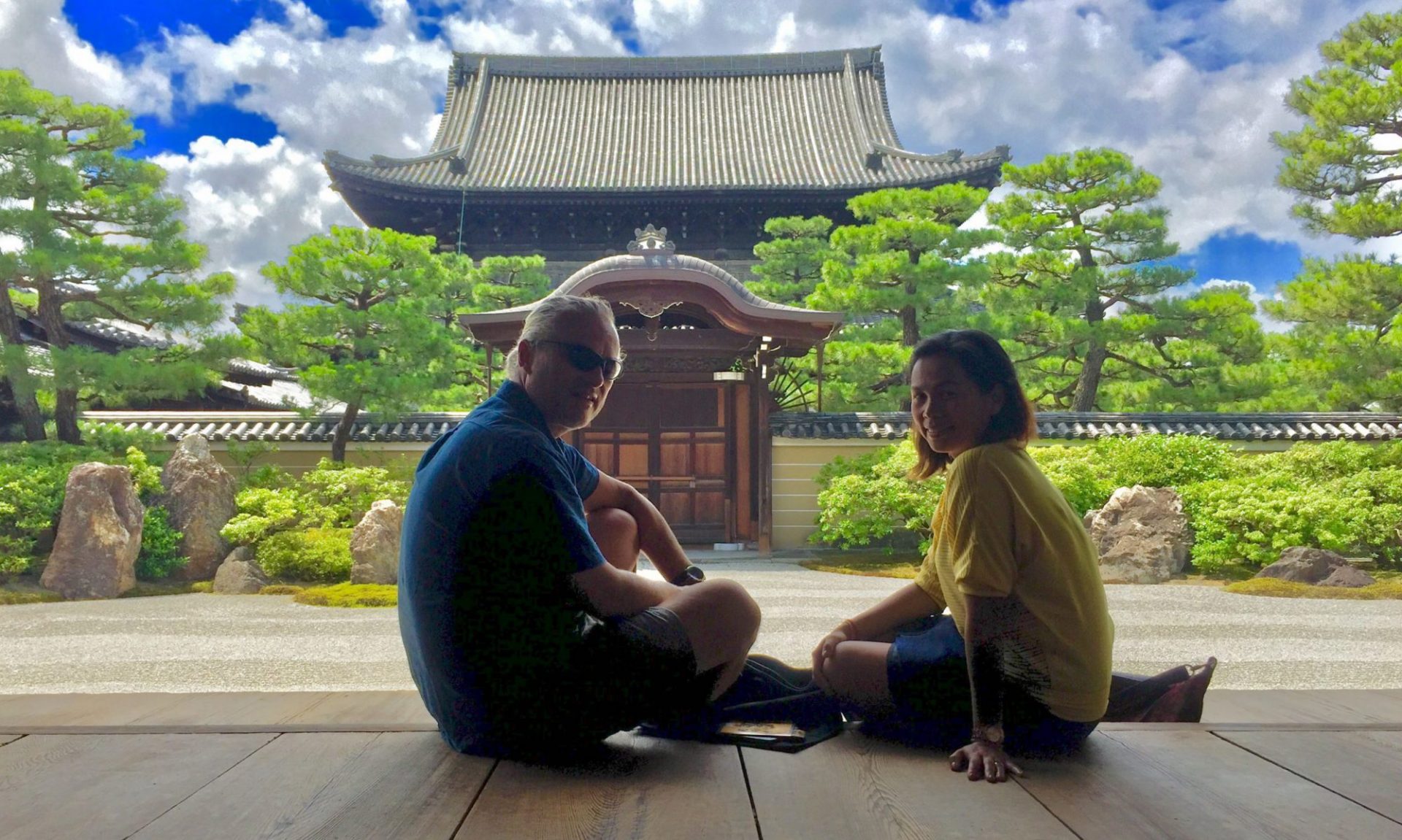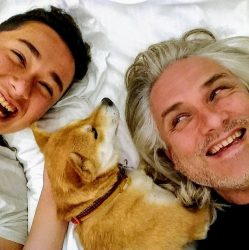And why we should stop eating animals. (written without any AI, just my mortal brain)
In memoriam Andreas Tschermak 4/12/2024
It took me some time to convince my employer that bringing my Shiba Inu Akira to work is a good idea. I’ve done it occasionally, not following the house rules of the university I work for as a lecturer in Film & TV production. Eventually I had to get a statement from my doctor to confirm that Akira can be considered an emotional support animal (ESA).
I am not a big fan of the ESA label. Usually people wonder what kind of emotional problem I must have that requires an ESA. Instead I think of Akira as my canine companion, my close non-human friend who once in a while comes along to one of my classes or staff meetings.

Akira in class with our students
Akira has an immediate effect on students and colleagues alike. Some want to pet her, some tell me they have dogs themselves and how much they miss their pet. Having Akira around in class or during a staff meeting creates a completely different setting, students and colleagues are often more relaxed and open up because they either have a pet themselves or are curious about Akira.
I am writing this sitting at the bedside of my stepfather who is in his last few moments in a Dutch hospital. My stepfather was never a people-person. He always preferred animals over humans. Death is now close, and we all know this will happen to us one day. In this consumer society, we find death most of the time as a caricature in an action or horror film. Death remains a tabu, hidden away in care homes, how many live alone in their big house after the children have left and a partner died. But I sense that change is coming as people begin to realise the empty promise of happiness through consumption.

Akira on my stepfathers deathbed
Akira next to my stepdad was a comfort to him, even the nurses were touched by the canine-human relationship. Her simple presence brightened up the afternoon for patients and staff on the ward reserved for the seriously ill and dying.
My mum and my stepfather always had dogs, one of them was a Bison Frisé named Bobby. Bobby starred alongside Jackie Chan in his film ‘Who Am I’. You can see Bobby in the scene where Jackie Chan is being chased through a Dutch city and he ends up saving Bobby from being squashed to death by a piano.

Jackie Chan, Bobby and my mum on location for ‘Who Am I’ in the Vleeshouwerstraat 27, Dordrecht, Netherlands.
Death sells box office tickets, death is distant, heroes (and Bobby) are usually saved from it. Death is not real, it is a safe spectacle on the screen, a film or the news, and it usually happens to other people far away, not to us.
When death comes – we act surprised. We pretend that we did not see it coming; we anesthesize our fear of death with work, until its too late, and then we regret that we did not spend more time with our friends and family. Yet from the moment of birth, there is only one direction ahead of us and that is towards inevitable death. We know it, but we don’t talk about it. It’s not a pleasant topic in a world that must be positive at all times.
The latest medical consumer hype is the nonsense that life-extending drugs will soon cure us from death, as if death was a disease. It is not. It will happen to all of us, sooner or later. To quote Jim Morrison: ‘No one here gets out alive’. There is no commercial solution to death in our sanitised consumer world. Real death is not entertaining, it’s not sexy, it smells bad, it is scary and it does not sell. But when death happens, a dog like Akira can provide support and comfort that humans cannot. We even remember animals but not the people.
I was working as post-supervisor in Babelsberg studios, Berlin, where I met Jackie Chan. He was filming ’80 Days around the World’ at the time. My mum forgot to get an autograph from him when he was filming in Dordrecht, so I asked him to sign a picture of my mum with Bobby. He did not remember my mum – but he remembered Bobby.

Jackie Chan in Babelsberg during a press call for 80 Days around the World
The same happened in Singapore where I worked as Assistant Director of Production and Post-production for NYU. Jackie Chan was the patron of the Tisch School of Asia and visited our campus. Of course he did not recognise me from Babelsberg, or remember my mum – but he remembered Bobby.

Jackie Chan during the opening of the NYU Tisch campus in Singapore
Our pets and the animals around us are so much kinder to us than we are to them. We breed them in giant animal factories, we transport them in cold weather and blistering heat across the country. Many don’t survive the transport, and those that do are slaughtered for cheap meat. Then there is ‘bio’-meat from happy animals, cattle that graze on green meadows, animals that enjoy life. Their happier existence, garnished with a bio-label, somehow makes it more palatable to murder them. Happy animals taste better. For me there is nothing tasty in bio-meat.
When we bring animals into our lives -other than as food on a plate- they enrich us. They make us better people and offer comfort to those in need. Like my stepfather, when the hospital allowed me to take Akira to him when he was dying. It’s not only the dying and sick that benefit – staff, other patients, they too appreciated Akira and wanted to pet her.
Akira cannot speak, but she can provide comfort to a human better than many humans can. We can learn from animals so much about life and death – and should not eat them.

Copyright of all fotos by F. Kohle

